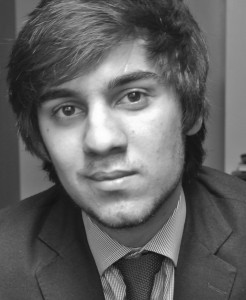
A few weeks ago, in his regular New York Times column, Thomas Friedman applauded the “radical evolutions” taking place across the Arab Gulf, dubbing them “The Other Arab Awakening“. Friedman makes the sweeping claim that, “in the wake of the Arab Spring, [Gulf leaders] are deeply concerned with their legitimacy, which they are discovering can no longer just be bought with more subsidies — or passed from father to son.” To support this claim, he references the increased use of social media to deliver satire and criticisms of authority by Gulf Arabs, in particular citizens of Saudi Arabia, Dubai and Abu Dhabi. However, the anecdotal evidence he cites is at best misconstrued, or worse, blatantly incorrect. What the article really amounts to is, in typical Friedman form, a series of unremarkable observations coalescing into a largely false conclusion serving only to confirm a bundle of neoliberal assumptions.
Ironically, only five days later, Friedman’s own paper published an article shining light onto the erratic “sensitivities” of the Emirates. The article took as its centrepiece the ongoing imprisonment of five men, one of whom is an American citizen, for their participation in the YouTube video, “Ultimate Combat System: The Deadly SatwaGs.” Appropriately, the most dangerous weapon in the fictional martial art (after a sandal and an agal) is a smart phone, specifically its twitter capabilities. There are likely a number of reasons, superficial and otherwise, that landed its creators in prison, but my guess is that at least one of them was only this half-joking representation of the social media’s power.
Friedman and his apologists continue to miss the forest for the trees. Indicative of this is what appears to be “The Other Arab Awakening’s” most humourous blunder. One example of the increasing accountability that Friedman is so excited about is the embarrassment of an Emirati official who was caught beating an Indian man after a minor traffic accident, with an agal no less. It is unclear what point Friedman wants to make with the alleged “embarrassment”. However, while he didn’t link the video to his article, it appears to be the same video referenced in the other New York Times article above, in which it was pointed out that the man who uploaded the video faces jail time himself. If this is the case, it isn’t just sloppy journalism on Friedman’s part, but a continuous mistaking of strategic censorship for measured increases in freedom.
To be fair, Friedman goes beyond social media references to point out that Dubai has implemented “Key Performance Indicators, or KPIs.” It is implied that these 3,600 KPIs, which Friedman reports are all tracked by Sheikh Mohammed bin Rashid on an “iPad dashboard”, will somehow lead to greater public accountability. The reason being is that the programme will result in a monthly ranking of ministries by how much they’ve progressed towards their KPIs in addition to an annual public report. The impact of this programme in “democratising” the Gulf seems dubious at best, but Friedman assures us that “you don’t want to be at the bottom [of that list]”. That this is seen as the start of real public accountability is perplexing. It is in the best interest of the government to have a successful country, so long as the larger economic arrangement remains unchanged. I have no doubt that there is a growing segment of Gulf Arabs unsatisfied with being placated by subsidies, but the reforms Friedman is keen to point out as representative of a move away from such tactics are really just “subsidies” under a different name.
The point here is not simply to rake Friedman’s writing over coals. The danger in his work is much worse than the stylistic idiosyncrasies of a blundering neoliberal. The problem is not just that the so called “evolution” of Gulf monarchies into progressively more democratic states is overstated at best, it is that these very evolutions he points out are more likely calculated means of giving the illusion of free speech. He has fallen for the red herring used time and time again by suppressive regimes: give people a few audacious critics to applaud, then pundits can point to this and say: “Look, they leave those journalists alone, surely this is the sign of real progress. After all, now they have (some) free speech!” All the while, the regime carries on without much shift in power.
This tactic is pervasive across the region, including Egypt, where the contrast is much more extreme. On the one hand you have widespread crackdown on dissidents and activists across the anti-military political spectrum while on the other you have journalistic institutions, like the one this article appears in, that continue to operate with freedom of speech. This combination means that the current government is allowed to continue operating with some semblance of openness (albeit a meagre one) while simultaneously sending a clear message of intimidation and control. This suffices for governments with budget surpluses large enough to ensure basic economic standards for their tightly controlled citizens.
Herein lies the real difference between the “radical revolutions” and “radical evolutions”; the continued radical unrest in the “revolutionary” countries is a result, not only of their inability to build stable democracies, but of their inability to rectify the underlying economic inequalities that persist to this day. This crucial fact is one that Friedman fails to acknowledge. In actuality, this difference is what distinguishes the social unrest in the region. Even if we are to take these reforms as earnestly as we are encouraged to, they remain nothing more than red herrings on an unchanged path.
Rasheed Hammouda is an Egyptian-American researcher based in London with a focus on MENA economics and contemporary philosophy



